Key takeaways:
- Environmental policies are vital in managing natural resources, reducing pollution, and supporting community sustainability, particularly in regions with unique biodiversity like the Philippines.
- Effective policies not only protect the environment but also improve public health and enhance resilience against natural disasters.
- Community involvement and education are crucial for the success of local environmental initiatives, encouraging a culture of sustainability and active participation.
- Collaboration between local governments, businesses, and residents can strengthen environmental efforts and foster a sense of ownership among community members.
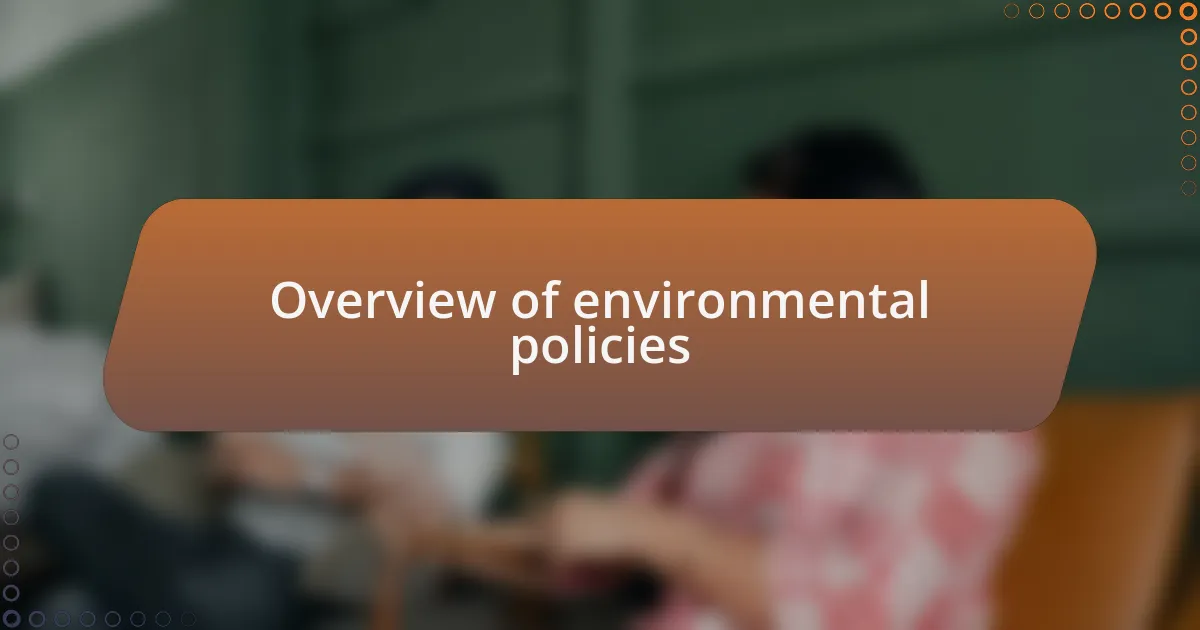
Overview of environmental policies
Environmental policies serve as the backbone of our efforts to protect the planet. These regulations govern how we manage natural resources, reduce pollution, and combat climate change. Have you ever paused to consider how these laws impact your daily life? I remember when a local policy aimed at reducing plastic waste sparked community conversations about sustainability. It made me realize just how interconnected we all are regarding environmental stewardship.
Within the Philippines, environmental policies are particularly crucial because of our unique biodiversity. For instance, efforts to conserve our coral reefs not only protect marine life but also sustain local fisheries and tourism, which many families rely on. I once visited a community that thrived on eco-tourism, and seeing their commitment to preserving their natural resources was truly inspiring. It made me appreciate how effective policies can cultivate a deeper connection to our environment.
Yet, as we navigate these policies, I can’t help but question their effectiveness. Are they enough to address the urgent challenges we face? During a recent community meeting, I observed concerned voices echoing a desire for stronger action. This firsthand experience highlighted the gap between policy formation and real-world impact, reminding me that advocacy and community engagement are vital in shaping the future of our environment.
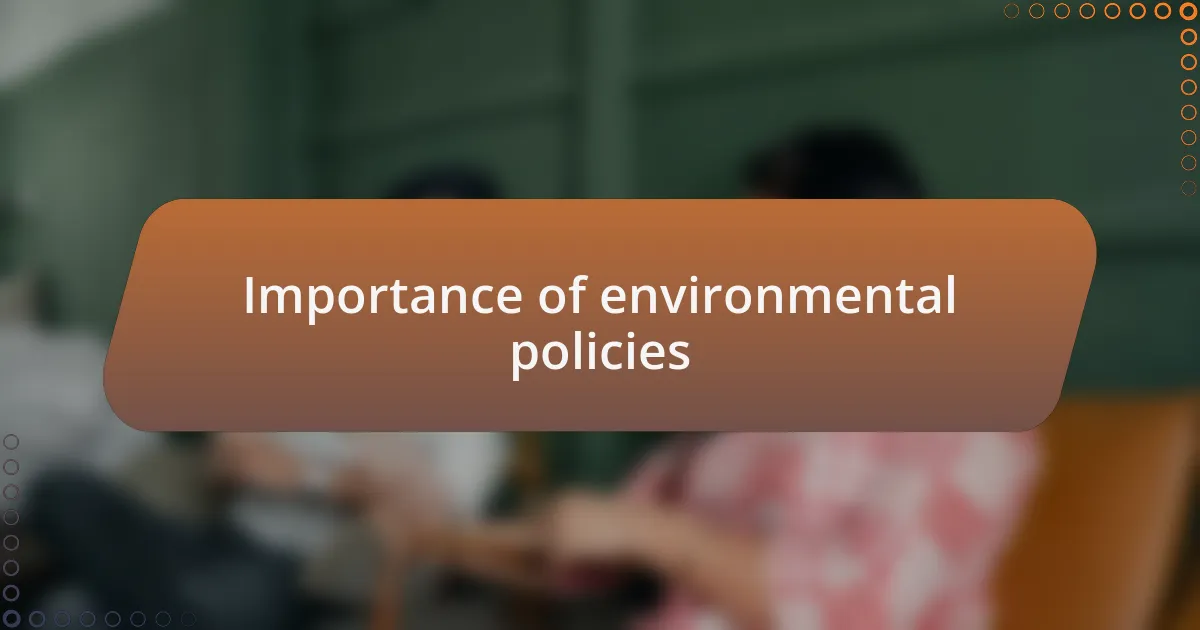
Importance of environmental policies
Effective environmental policies are essential for fostering sustainable development. They create frameworks that guide industries toward greener practices, which ultimately diminish our carbon footprint. I remember a time when my neighborhood implemented a strict waste segregation policy; initially met with resistance, it gradually transformed our community habits and reduced landfill contributions substantially. Have you noticed how small changes can lead to a collective impact?
In the Philippines, the importance of these policies extends beyond environmental benefits, as they also safeguard public health. For example, when urban areas improve air quality standards, it directly results in fewer respiratory ailments among residents. I can’t help but reflect on how vital it is for our government to prioritize policies that not only protect the ecosystem but also enhance our quality of life. Isn’t it worth considering how our health is tied to our environment?
Moreover, strong environmental policies encourage community resilience against natural disasters, which are increasingly common due to climate change. I once participated in a local disaster preparedness workshop, where experts emphasized the role of sustainable land use policies in mitigating flood risks. This experience highlighted how policies do more than regulate; they empower communities to adapt and thrive in the face of challenges. What can we do to raise awareness about the need for integrated policies that support both our environment and our communities?
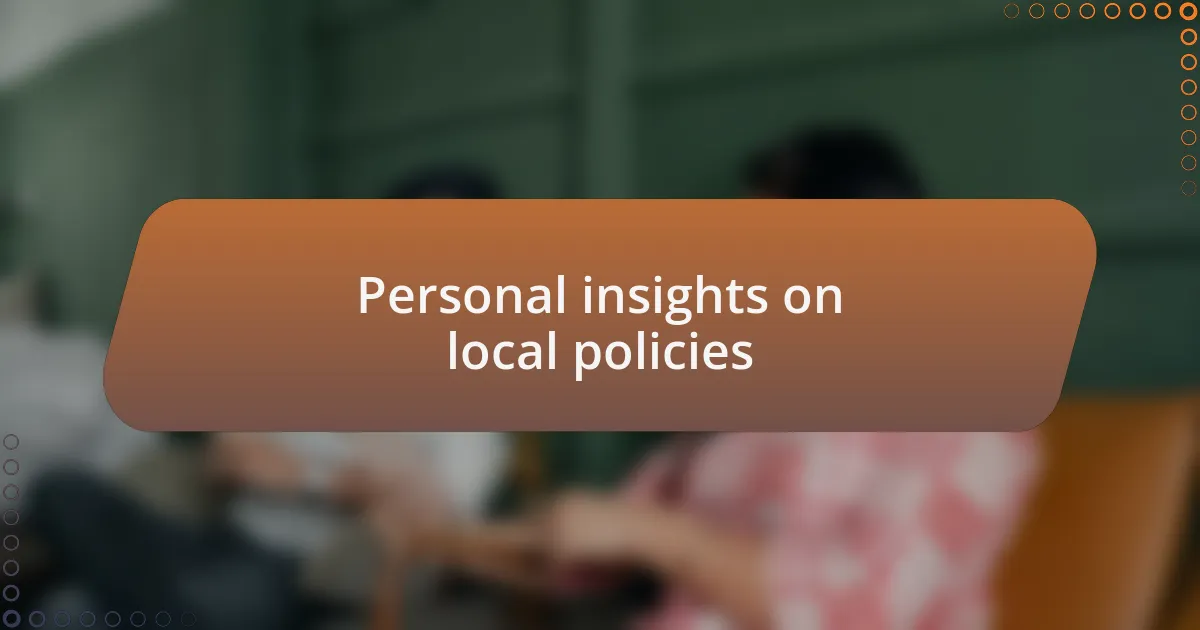
Personal insights on local policies
Local policies play a crucial role in addressing environmental concerns right at our doorstep. I recall attending a town hall meeting where community members expressed their frustrations about flooding, and it became evident how effective drainage systems were not just about infrastructure; they were intertwined with our local policies. It makes me wonder, how often do we consider the policies behind those solutions when we experience environmental issues?
The sense of ownership and responsibility can foster a culture of sustainability within our neighborhoods. When my city introduced incentives for renewable energy installations, I saw friends and neighbors embracing solar panels and rainwater harvesting systems. It struck me that these policies do not just encourage greener practices; they also build a community spirit, showing that each of us has a part to play in protecting our environment. Have you seen similar initiatives in your area that made a difference?
Reflecting on my experiences, I’ve noticed that the success of local policies often hinges on community involvement. I remember when residents banded together for a tree-planting campaign; it wasn’t just about adding greenery. It became a celebration of our collective commitment to the environment, reminding everyone that we are not merely passive observers of local policies, but active participants in shaping our futures. Isn’t community engagement the heart of making effective policies work?
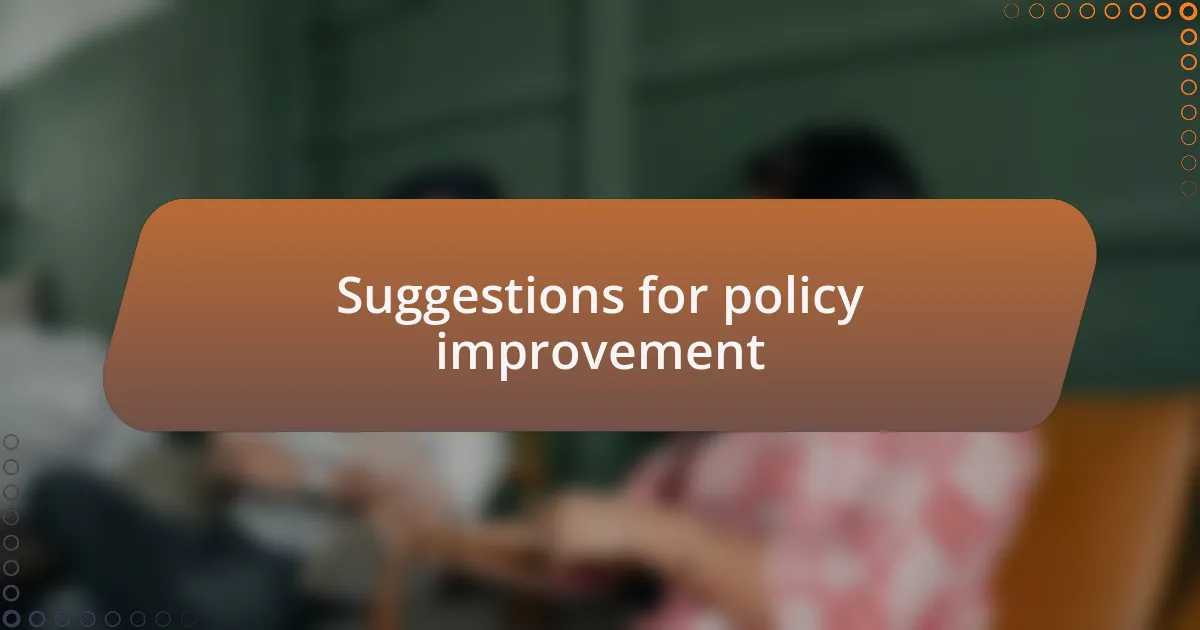
Suggestions for policy improvement
An effective environmental policy must prioritize education and awareness among community members. I remember a workshop I attended where local leaders discussed sustainable practices. It was eye-opening to see how simple ideas, like composting and reducing plastic use, could have such profound effects. Why isn’t this kind of education more widespread? I genuinely believe that when communities understand the “why” behind environmental actions, they are more likely to take them seriously.
In addition to education, policies should aim to allocate funding for grassroots projects initiated by locals. I can recall when a small neighborhood group proposed a community garden, and, with a little support from the local government, it became a beautiful space for learning and growing food. Experiences like this show that when policies empower residents to implement their ideas, we see a stronger investment in environmental stewardship. Have you ever witnessed a project like this thrive because of local backing?
Lastly, I think it’s vital to streamline the process for citizens to voice concerns and suggestions regarding environmental issues. I’ve seen how frustrating it can be for community members to feel unheard after raising valid concerns about waste management or pollution. When local governments create accessible platforms for dialogue, it not only strengthens trust but also fosters a collaborative approach to problem-solving. Isn’t it time we make it easier for everyone to be part of the conversation?
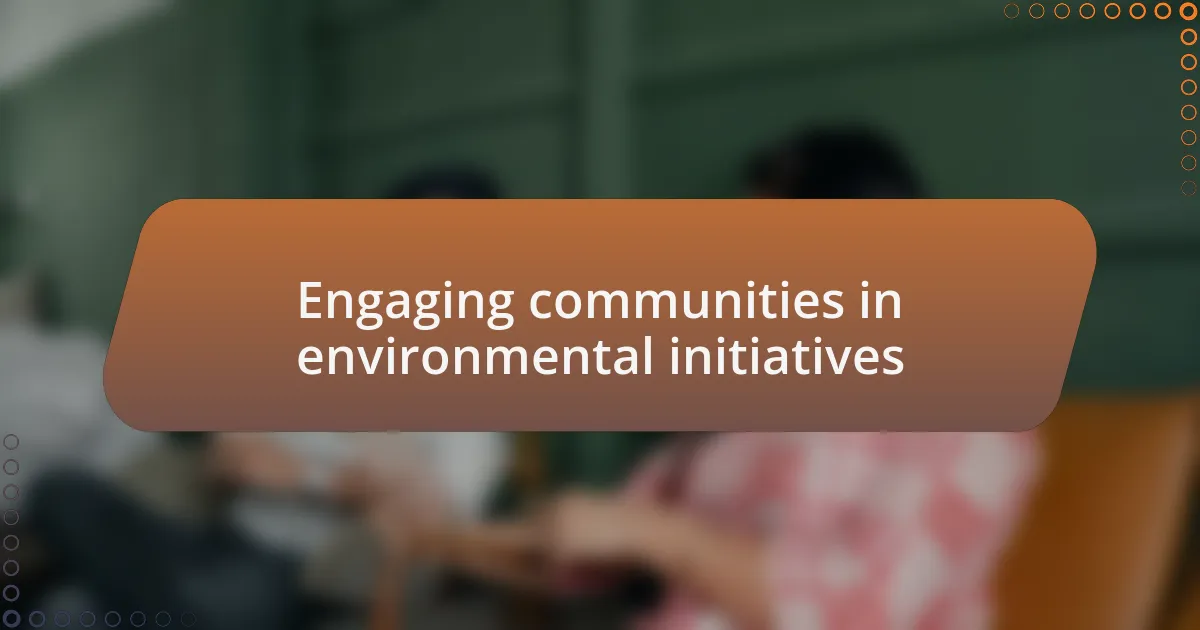
Engaging communities in environmental initiatives
Engaging communities in environmental initiatives starts with fostering a sense of ownership among residents. I recall a beach cleanup we organized in my neighborhood, where everyone from kids to seniors joined in. The pride on people’s faces when they saw the beach transformed was incredible. Aren’t those moments the ones that truly spark lasting change?
Moreover, I think sharing success stories can be incredibly motivational. When I attended a community forum showcasing local projects that reduced waste, it was inspiring to hear from families who had committed to zero waste lifestyles. Their enthusiasm was contagious, leaving several attendees, including me, eager to adopt similar practices. Doesn’t celebrating these achievements make participation feel more achievable?
Another essential element is collaboration with local businesses and organizations. I remember how a partnership with a local grocery store led to a campaign promoting reusable bags. It really emphasized how collective efforts amplify impact. How can we further cultivate these partnerships to make a more significant difference together?